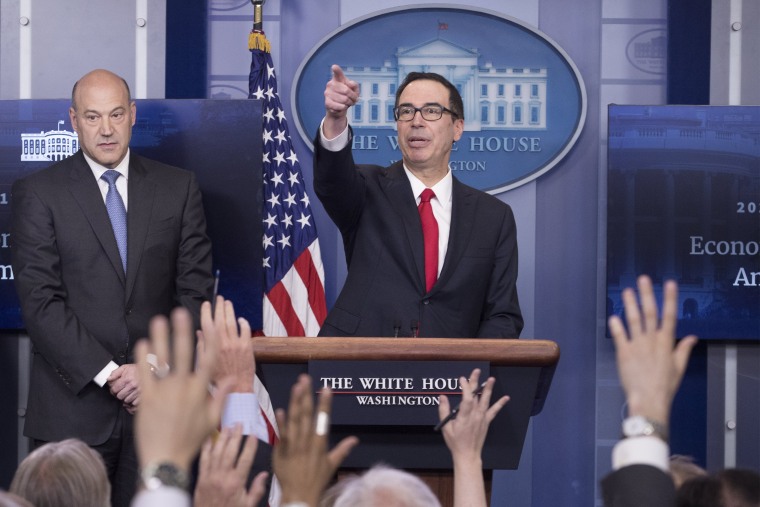House Speaker Paul Ryan appeared on CNBC yesterday, in part to help promote the Republicans' new tax plan, and the Wisconsin Republican seemed eager to boast about the outline he helped write. He and his partners, Ryan said, "made sure we did the hard lifting and the tough work" before rolling out the proposal.
I wish that were true. It's not. Six like-minded allies met in secret for months, writing a partisan outline behind closed doors, and came up with a bunch of tax cuts. They didn't make any of the difficult choices about how to pay for the "plan," and at least at this point, they've left all kinds of questions unanswered about who'll win and who'll lose if their framework is implemented.
NBC News' Benjy Sarlin explained yesterday, for example, that while gains for ultra-wealthy Americans and businesses are "larger and more concrete" in the GOP proposal, the "net effects on lower- and middle-income Americans are hard to determine." If Republicans had done "the hard lifting and the tough work" before unveiling the framework, there'd be far less ambiguity.
Indeed, one of the architects of the plan, former Goldman Sachs chief Gary Cohn, Donald Trump's top economic adviser, talked to ABC News' George Stephanopoulos yesterday about some of these ambiguities.
STEPHANOPOULOS: ...If I'm hearing you correctly, you can't guarantee that no middle-class family will get a tax increase. There will be middle-class families who get a tax increase under your plan, correct?COHN: George, there's an exception to every rule.STEPHANOPOULOS: So that's a yes?COHN: Look, I can't guarantee anything. You could always find a unique family somewhere.
I suppose Cohn deserves some credit for candor -- it must have been tempting to make a guarantee he couldn't back up -- but the top economics official in the White House seems to realize that some middle-class households really could pay more under the Republican proposal, despite the plan's tax breaks for the wealthy, and despite Donald Trump's rhetoric about the policy's intended beneficiaries.
What's more, Cohn's hesitation is rooted in facts he probably recognizes. Slate had a piece yesterday explaining why some middle-class families really would be positioned to see their taxes go up, not down, under the GOP plan.
Here’s the issue: The GOP wants to create a larger “zero tax bracket” by doubling the standard deduction to $12,000 for singles and $24,000 for married couples. Any income below those thresholds would be exempted from the income tax, which would reduce what some families owe the IRS, potentially.However, in order to “simplify the tax rules” (and save costs) the plan would also do away with personal exemptions, which currently allow Americans to deduct $4,050 from their taxes for themselves and each of their dependents. As a result, many parents could actually end up owing taxes on more of their earnings than before. Worse yet, the GOP plan would increase the lowest tax rate from 10 percent to 12 percent.
Business Insider's Josh Barro fleshed this out in even more detail.
Keep this in mind the next time the president insists his plan is all about helping the middle class.
